Table of Contents
Acne can feel like an uphill battle, but choosing the right products can make all the difference. Among your skincare essentials, soap plays a vital role in managing pimples and maintaining clear skin. With so many options on the market, it can be tough to figure out which soap works best for acne-prone skin. That’s why we’ve put together this guide to help you find the Best Soap for Pimples and learn how to use it effectively for visible results.
What Causes Pimples and Why Soap Matters

When I first started breaking out, I thought any soap that said “for acne” would do the trick—but I quickly learned that not all soaps are created equal. Pimples don’t just pop up randomly; they usually happen when excess oil (sebum) combines with dead skin cells and clogs up your pores, giving bacteria the perfect place to thrive. That’s why picking the best soap for pimples is so important—it’s your first line of defense to gently cleanse your skin, control oil, and fight off acne-causing bacteria without making things worse. After digging deep into what actually causes pimples and testing different products myself, here are the key triggers you need to know and how the right soap can help tackle each one:
- Lifestyle & Diet – While soap can’t control your eating habits, it can help manage the external impact of internal triggers like dairy or sugar.
- Excess Oil (Sebum) – Hormonal changes or stress can lead to oil overload; a good soap balances oil without drying out your skin.
- Clogged Pores – Dead skin cells build up fast; exfoliating soaps with salicylic acid or charcoal keep pores clean and clear.
- Bacterial Growth – Acne-causing bacteria thrive in oily, clogged environments; look for antibacterial ingredients like tea tree oil or neem.
- Harsh Products – Strong, fragrance-filled soaps can strip your skin barrier; choose a pH-balanced, gentle soap that’s made for acne-prone skin.
Key Ingredients to Look For in Acne Soap to choose the best soap for pimples

When searching for the best soap for pimples, keep an eye out for these dermatologist-recommended ingredients:
- Salicylic Acid
This exfoliates deep inside the pores, breaking down oil and dead skin that clog them. If you’ve ever noticed tiny bumps on your forehead or nose that feel rough but aren’t exactly pimples, salicylic acid helps smooth them out over time. - Benzoyl Peroxide
Kills the bacteria that cause inflamed pimples. You’ll typically see a decrease in red, swollen breakouts and fewer new ones popping up if used consistently in low strength. - Tea Tree Oil
A natural antibacterial and anti-inflammatory. If your skin tends to get irritated easily, but you still break out, tea tree oil can help reduce the redness and swelling without causing dryness or peeling. - Sulfur
Gently dries out active pimples and removes excess oil. It’s especially useful if you get shiny skin mid-day or feel like your T-zone is constantly greasy, even after washing. - Activated Charcoal
Absorbs dirt, oil, and impurities. Think of it like a magnet that pulls out the gunk sitting in your pores—especially after a long day outside or sweating a lot. - Aloe Vera
Soothes irritated or over-treated skin. If your skin feels tight, red, or itchy after washing, a soap with aloe vera can help calm things down and restore moisture.
Ingredients to Avoid while choosing the best soap for pimples

While some ingredients can fight pimples effectively, others can worsen your condition. Stay away from these culprits:
- Sulfates
These give soap that “foamy” feel but often leave skin feeling tight and dry. If your face feels squeaky clean right after washing, but oily an hour later—that’s a sign sulfates are stripping your skin and triggering more oil production. - Artificial Fragrances
They can smell amazing, but if your skin starts to sting, turn red, or break out in itchy bumps after using a soap, fragrances might be the hidden culprit. - Alcohol (like denatured or isopropyl alcohol)
These are sometimes added for a quick-dry or “refreshing” effect, but they disrupt your skin barrier. If your skin feels overly dry, flaky, or starts peeling around breakouts, alcohol could be the reason. - Coconut Oil
While it feels luxurious, it’s comedogenic, meaning it clogs pores. If you notice more breakouts on your cheeks or chin after using something rich or creamy, coconut oil might be behind it.
Best Soap for Pimples and Acne

Here’s a curated list of the best soap for pimples available on Amazon and Flipkart. These products are highly rated and cater to different skin types.
1. Neutrogena Transparent Facial Bar
- Key Ingredients: Glycerin, salicylic acid
- Pros: Non-comedogenic, gentle on skin, dermatologist-tested
- Cons: Can be slightly drying for sensitive skin
- Best For: Oily and combination skin types
2. Cetaphil Gentle Cleansing Bar
- Key Ingredients: Glycerin, petrolatum
- Pros: Fragrance-free, hydrating, suitable for sensitive skin
- Cons: Doesn’t target severe acne directly
- Best For: Dry and sensitive skin types
3. The Body Shop Tea Tree Skin Clearing Soap
- Key Ingredients: Tea tree oil
- Pros: Natural ingredients, treats acne without irritation
- Cons: Slightly higher price point
- Best For: Acne-prone and oily skin types
4. Acnes Washing Bar
- Key Ingredients: Herbal extracts, salicylic acid
- Pros: Affordable, specifically formulated for acne
- Cons: Strong scent may not appeal to some users
- Best For: Teenagers and adults with active breakouts
5. Lush Fresh Farmacy Bar
- Key Ingredients: Calamine, chamomile extract
- Pros: Gentle and soothing, reduces redness
- Cons: Limited availability in some regions
- Best For: Sensitive skin with mild acne
Lifestyle Tips for Clear Skin
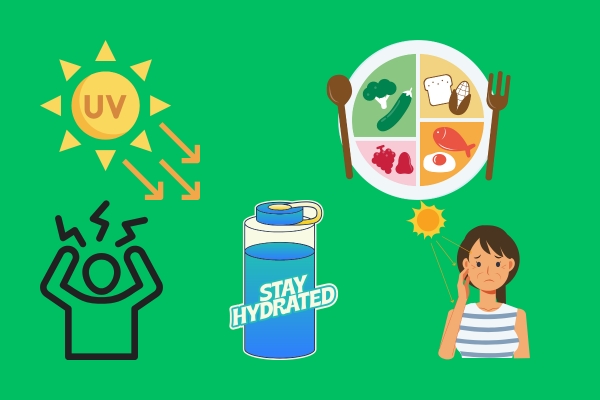
Using the best soap for pimples is a great first step, but it’s only part of the puzzle. Clear skin isn’t just about what you put on your face. Your daily habits play a big role in how your skin looks and feels.
I’ve learned through personal experience and expert insights that small lifestyle changes can make a noticeable difference. Here’s how you can support your skincare routine from the inside out:
1. Stay Hydrated
Water helps flush out toxins and keeps your skin cells plump and healthy.
If your skin often looks dull or feels tight, it might be a sign you’re not drinking enough water.
Aim for 8–10 glasses a day. Keep a water bottle with you and sip regularly—it’s a simple habit that pays off.
2. Eat Skin-Friendly Food
What you eat shows up on your skin. Sugary snacks, greasy fast food, and too much dairy can trigger breakouts in some people.
Try to load your plate with fresh vegetables, fruits, whole grains, and omega-3-rich foods like walnuts or flaxseeds. These fight inflammation and help your skin heal faster.
Even small swaps—like replacing soda with green tea or choosing a handful of almonds over chips—can help reduce flare-ups.
3. Manage Stress
Stress increases cortisol, which signals your skin to produce more oil, leading to more breakouts.
Incorporate calming routines into your day. This can be as simple as stretching in the morning, doing 10 minutes of meditation, or journaling before bed.
I personally saw fewer stress-related pimples after adding a short breathing routine into my evenings. It’s quick and makes a difference.
4. Protect Your Skin from the Sun
Sun exposure doesn’t just age your skin—it can also worsen acne scars and dark spots.
Make sunscreen a daily habit, even if it’s cloudy. Choose a lightweight, non-comedogenic SPF that won’t clog pores.
Apply it at the end of your morning routine and reapply if you’re going outside for long periods. Your skin will thank you.
How to Use Acne Soap Properly

Using the best soap for pimples isn’t just about picking the right product—it’s also about how you use it. Even the most effective acne-fighting ingredients won’t deliver results if your cleansing routine is rushed or careless. Over the years, I’ve learned that small details in your routine can make a big difference in preventing new breakouts and improving your skin’s overall health. Here’s a step-by-step guide to help you get the most out of your acne soap, while keeping your skin balanced and healthy.
- Start with Clean Hands
Always wash your hands first. You don’t want to transfer dirt, oil, or bacteria to your face while cleansing—it defeats the purpose of using acne soap in the first place. - Wet Your Face with Lukewarm Water
Lukewarm water helps loosen dirt and gently opens up your pores. Avoid hot water, which can dry out your skin and trigger more oil production later. - Create a Gentle Lather
Rub the soap between your palms or use a soft facial cleansing pad to build a light lather. Don’t apply the bar directly to your face, especially if it’s been sitting in the shower where bacteria can collect. - Massage Gently in Circular Motions
Apply the lather to your face using your fingertips in small, circular motions. Focus on acne-prone areas like the T-zone, but avoid scrubbing too hard—that can irritate your skin and worsen inflammation. And always steer clear of the delicate eye area. - Rinse Thoroughly with Cool or Cold Water
Make sure no residue is left behind. Cool water helps close your pores and soothes the skin after cleansing. Incomplete rinsing can lead to clogged pores or dryness. - Pat Dry with a Clean Towel
Use a fresh, soft towel and gently pat—not rub—your face dry. Reusing towels or being rough with your skin can introduce bacteria or cause irritation. - Follow Up with a Non-Comedogenic Moisturizer
Even oily or acne-prone skin needs hydration. Choose a lightweight, oil-free moisturizer that won’t clog pores. This helps restore your skin barrier and prevents it from overproducing oil after cleansing.
Bonus Tip:
If you’re using a medicated soap (like one with salicylic acid or benzoyl peroxide), start by using it once daily, then gradually build up to twice a day if your skin tolerates it well. Overuse can cause dryness or sensitivity, especially at the beginning.
Myth vs. Fact
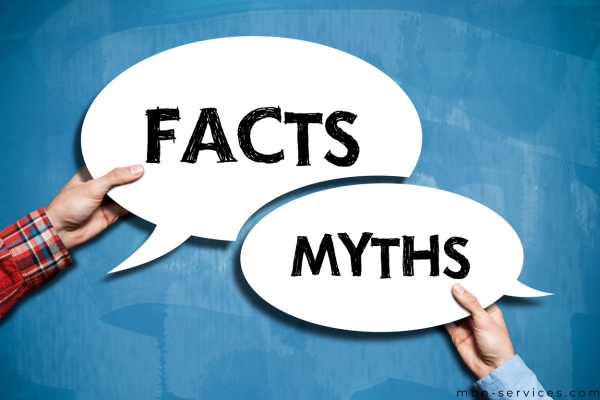
Myth: Using more soap will clear acne faster.
Fact: Over-washing can irritate your skin and trigger more breakouts. Stick to cleansing twice daily.
Myth: All-natural ingredients are good for acne.
Fact: Natural doesn’t always mean safe. Some natural oils can clog pores and worsen acne.
Myth: Acne soaps work instantly.
Fact: Visible results take time. Consistent use over a few weeks is necessary for improvement.
FAQ’s

1. Does soap stop pimples?
A. Yes, but cleansing with simple soap or face wash and water isn’t enough to clear up acne.
2. Does ice help pimples?
A. Yes, applying ice to pimples can help reduce redness, swelling, and pain, making them less noticeable and providing temporary relief. However, it’s not a long-term solution for acne and won’t eliminate the underlying causes.
3. How to rub ice on the face?
A. To rub ice on your face, first wrap ice cubes in a clean cloth or towel to prevent direct skin contact, then gently massage in circular motions around your face, including areas like the forehead, cheeks, and under-eyes. Do not leave ice on any area for longer than a minute or two at a time. Afterward, apply a moisturizer to help preserve moisture.
4. Do pimple patches work?
A. Yes, pimple patches, particularly those containing hydrocolloid, can be effective for treating surface-level, pus-filled pimples by absorbing fluid, creating a moist healing environment, and preventing picking, which can lead to scarring.
5. Which is the best face wash for pimples?
A. We have already written some Blog posts on face wash for different concerns. Click here to read the Article where we have explained about the best face wash for pimples.
Achieve the Clear Skin You Deserve

Choosing the Best Soap for Pimples can make a significant difference in managing and preventing breakouts. Pair your soap with a proper skincare routine and lifestyle changes for the best results.
If you’d like more skincare tips and product recommendations, visit our blog at https://mbn-services.com/blog/. Don’t forget to subscribe to our blog for the latest updates and expert skincare advice straight to your inbox!
Subscribe to our newsletter!

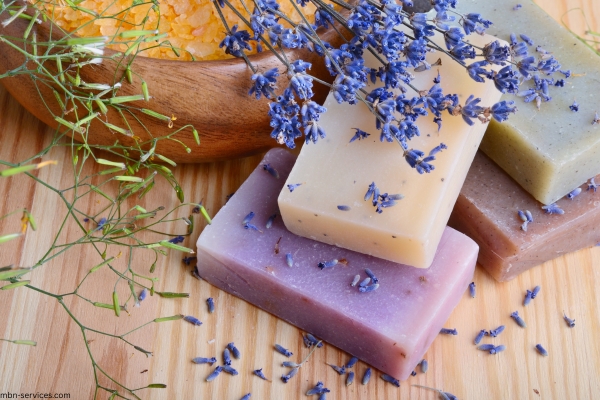
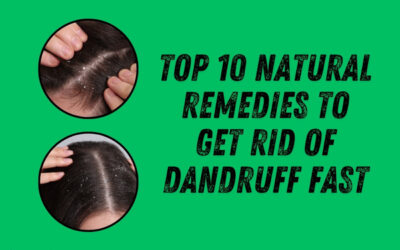
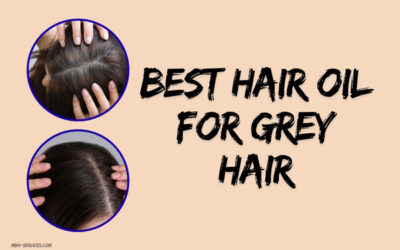
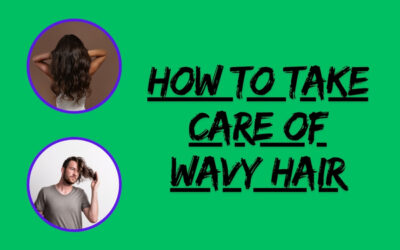
Great looking internet site. Assume you did a great deal of your own coding.